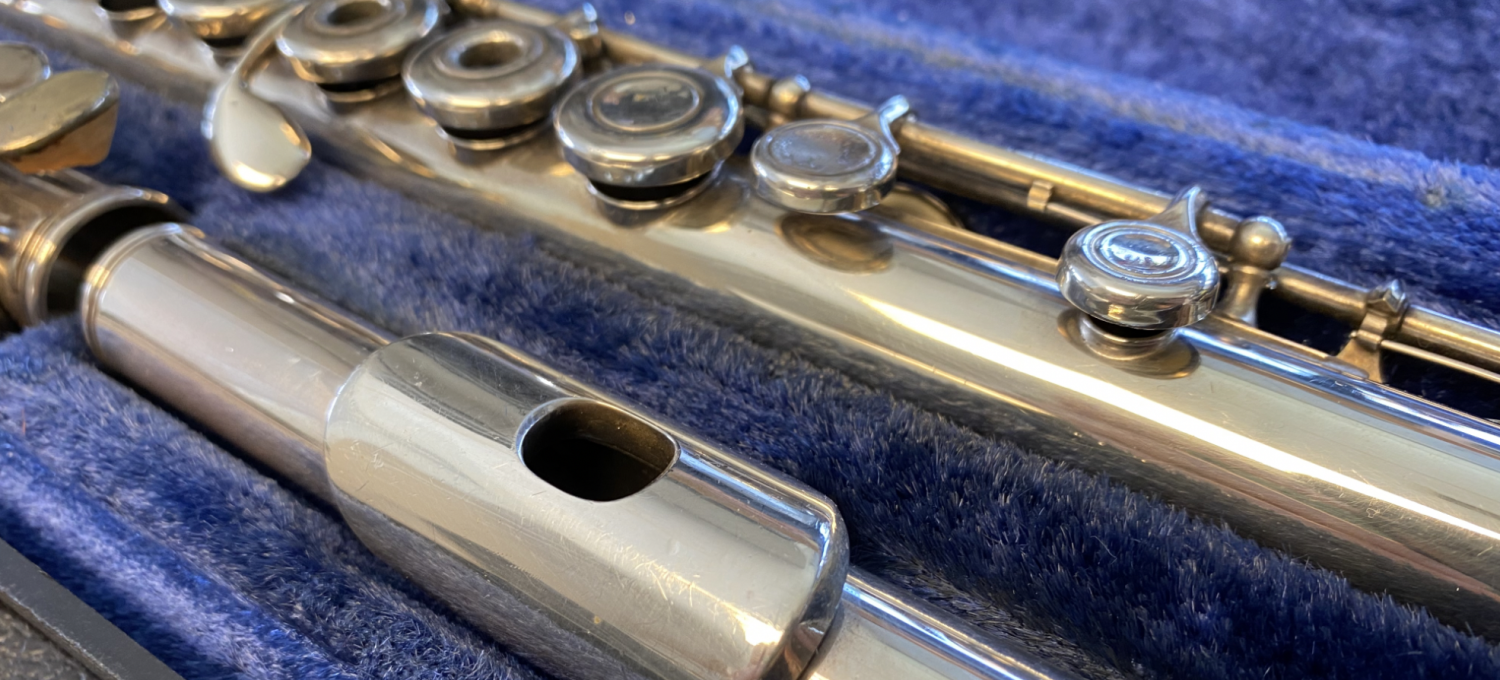Many of us have been in the situation where we realize that it is time to upgrade our flutes and we make the decision to sell our old flute, or that headjoint that has been laying around for a while. As someone who works in the field of selling flutes and repairing them professionally, I thought I would share some insights to help everyone understand the process.
First, let’s discuss valuation. This is where many people get confused or even defensive. There is a huge difference between insurance appraisal or valuation and a selling price. The insurance valuation is meant to cover the cost of replacing your flute with a flute of similar specifications should disaster strike. This doesn’t mean this valuation is what your flute is worth, just replacement value on the current market. The best way to get an idea of what your flute is truly worth is to do an internet search (it is what most places do before deciding what to offer you). You will often find an idea of what your flute would sell for on the current market keeping in mind that finding your exact flute specifications may not happen, but it will give you a ballpark figure. Also, you can sell your flute for whatever YOU want for it—just keep in mind other people don’t have to pay what you are asking for it, especially if you give it a higher price point. Higher prices may eventually pay off if you have time to wait (I had a headjoint I was trying to sell for 10 years…) and lower prices will sell faster. How much money do you need or want and what amount are you comfortable with getting?
Second, keep in mind that if your flute needs servicing, that will depreciate the value. This isn’t about your opinion about the tarnish and the one torn pad. If the flute is not is perfect condition and playing like a rock star you may need to negotiate the price so that the buyer is compensated a bit for the work they have to do that you didn’t prior to selling the flute. I have met many people who pride themselves on how their flute has never needed any work. As a repair technician, this is a troublesome comment. Yearly maintenance (replacing the oil and cleaning the mechanism) adds to the longevity and reliability of the flute. I would gladly pay a higher price for a regularly maintained instrument than one that has “never needed work.” Yearly maintenance helps your flute hold the resale value in the end!
Third, consider consignment. Some companies will take your old flute as a trade-in towards your new flute. These companies may also sell your flute for you but at a price. I speak from experience here. Consignment fees can range from 5% to 20% of the selling price. Now, before you cough and choke on those numbers, keep a few things in mind. They are advertising the sale for you and reaching far more potential buyers than you can alone, even on the flute boards on social media. Also, they are covering the shipping fees and insurance costs for the trials (rarely do people buy a flute untested and unseen). These trials come a great personal risk if you choose to do it on your own. Nothing like sending a flute to someone from a social media post and either getting it back damaged (good luck with getting money for repairs) or not getting it back at all. These companies also have technicians who will maintain the flute between trials so that it is clean and fresh before it goes out again and this raises the likelihood that it will sell!
If you choose to consign, don’t be afraid to negotiate but in the end, it is the company’s choice as to whether or not they want to sell your instrument for you. It is usually in their best interest but they aren’t required to take your flute. If your flute needs an overhaul or COA, they may take this service fee and the consignment fee out of the final amount. Make sure you know the details of the consignment. Some places will give you a discount on the service fee and some places will list a flute “as is.” Remember a flute that doesn’t play well won’t sell. All of the companies I know that do consignment are more than happy to negotiate but also have set policies. It never hurts to discuss options. They know the market (it is what they do for a living) so listen to their advice. If you don’t like the options, shop around, and in the end, you don’t have to go through consignment if you don’t like the fees, but it may cost you more time AND money in the end. The fees can be steep but so can the risks of doing it yourself.
Finally, word of mouth is always the best way to start. Email your local professors and flute teachers. There is almost always a student looking for an upgrade. Although, keep in mind, if you live in a rural part of the country with a small community college and a high school that only has three flute players, the likelihood of someone wanting to buy your 14k gold flute for $30,000 is very low. But if you are selling your step-up flute with a solid silver headjoint for $800, then you stand a better chance catching one of the local players who wants to move up from their student instrument.
Do your research, ask questions and understand the market—or trust those who do. Selling your used flute may be helping to financing your dream flute but that old flute might be a dream for someone else. Good luck!


I have a geminhardt m2 59493